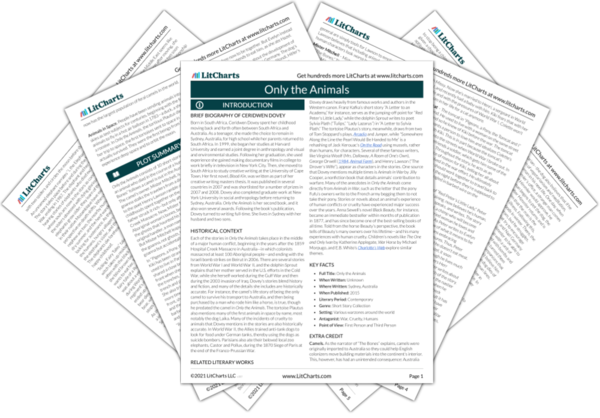Previous
Somewhere Along the Line the Pearl Would Be Handed to Me: Soul of Mussel
|
Previous
Somewhere Along the Line the Pearl Would Be Handed to Me: Soul of Mussel
|
Only the Animals: Plautus: A Memoir of My Years on Earth and Last Days in Space: Soul of Tortoise Summary & Analysis |
Next
I, the Elephant, Wrote This: Soul of Elephant
|
